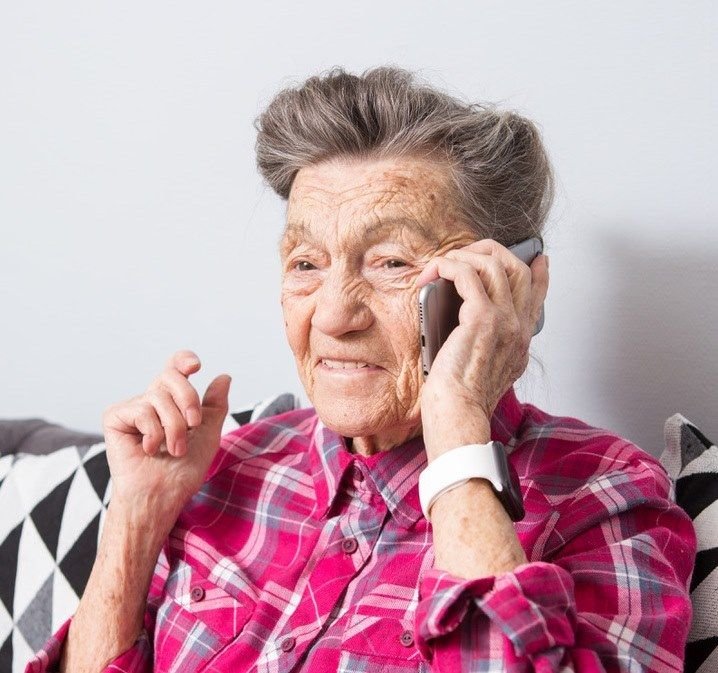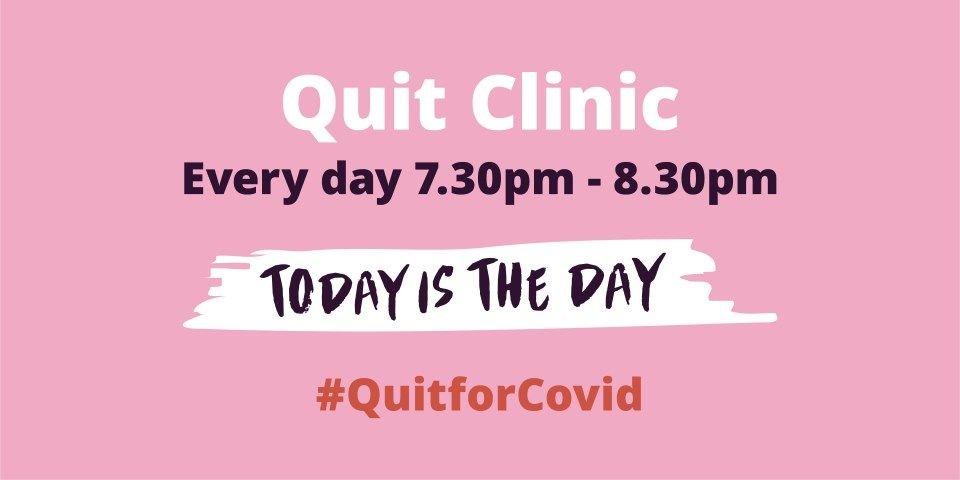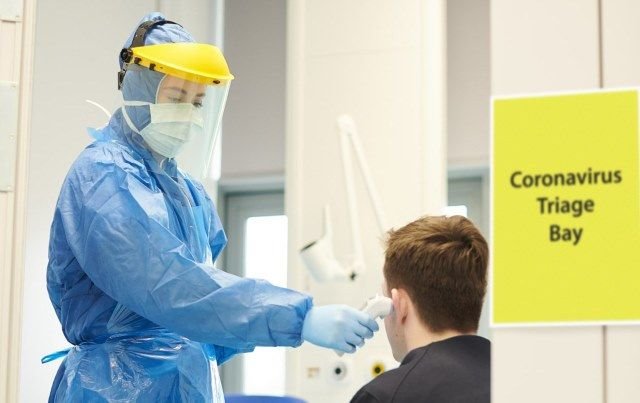Posted on: 3 April 2020
Hello, my name is Rob.
The way we work and the way we live our daily lives has been changing significantly in the last few weeks. Across our communities in West Yorkshire and Harrogate we are seeing a response that characterises us. Ingenuity and grit is balanced by pragmatism and humour. Together we are showing a collective will in our households, streets, organisations and communities that culminate in collective actions to save lives.
There are a number of things that we need to see in place if we are to keep people alongside us. The first is that the people we are asking to take risks are given the best kit available. Personal protective equipment (PPE) has been a feature of every discussion on the current COVID-19 outbreak that I have been involved in. We are now seeing improvements in two dimensions.
Firstly the supply arrangements have changed and are improving with new supply chain arrangements in place. There is still work to do here to maintain, manage and forecast our needs and this is a fundamental priority for the Partnership. This was one of the main discussion areas at the sector leads meeting on Wednesday and at the Local Resilience Forum. I am delighted that Mel Pickup, CEO for Bradford Teaching Hospitals NHS Trust has agreed to lead this work on our behalf, closely linked to the military and procurement teams in the supply chain.
Secondly, we need a consistent set of guidance from Royal Colleges and Public Health England (PHE) that reflects the current state of the pandemic. Previously we had a conflicting set of messages from multiple routes. This joint PHE and Academy of Medical Royal Colleges guidance arrived yesterday and is available here. This will bring greater confidence for our staff and teams. We are all endeavouring to implement the guidance today.
The other significant area we need to improve upon is testing of staff. Around 10% of staff is off work because of Covid-19 related issues – self isolation, family members and shielding. Many are able to work because of digital means but not all. Testing staff that could be providing hands on care is a priority and there has been a lot in the news this week about the government putting plans in place to start testing staff. This has begun but initial numbers are limited. In the first instance we are focusing on staff working in critical care, the Emergency Department, the Ambulance Service and any local essential services experiencing pressures. Organisations are creating the mechanisms for testing which can be stepped up when the tests become available. This is limited at the moment because of availability of reagents, which is a national issue and we expect improvements quickly.
We need our staff and communities with us, as we all have a role. Social distancing came into force less than two weeks ago and is a key part of our strategy. Government Chief Scientific Adviser, Sir Patrick Vallance, said that people are following the advice to stay at home which is making a difference as transmission rates of COVID-19 in the community are thought to be decreasing. This could ultimately mean fewer infections. What we do know is that the infections from a few weeks ago are causing increased deaths today and that this will continue to be the case as there is a lag between community actions to reduce spread, subsequent illnesses, severe illness and deaths. The peak in illnesses is expected to be over the Easter weekend and we are gearing up to manage this in all of our places.
Across West Yorkshire and Harrogate, growing numbers of people are coming together to support our local communities at this challenging time. From delivering supplies and helping at food banks to supporting others over the phone and dog walking – this army of volunteers is helping us all to get through the coronavirus outbreak together. Our local councils have set up helplines and are co-ordinating community support to make sure that those most affected by COVID-19 and those shielded are identified and offered the help they need.
There’s no doubt that the pandemic is impacting on people’s mental health and is affecting people of all ages. The missing out on social interaction, job security and worrying about our families and friends – and the fear of the virus itself is real to us all.
There are things we can all do for ourselves and for each other. Public Health England has published advice on how to look after your mental health and wellbeing during the COVID-19 outbreak. A number of organisations, like my own trust (South West Yorkshire Partnership NHS Foundation Trust), and national groups like HeadSpace have developed web based support and we have expanded adult improving access to psychological therapies capacity to ensure support is available. We have also commissioned a West Yorkshire and Harrogate wide 24/7 public helpline which will support the public. Details will follow on this major development shortly.
The big news today is on the NHS Nightingale Hospital Yorkshire and the Humber temporary hospital being developed in Harrogate. It will take up to 501 patients if required. It supplements the critical care capacity of our acute hospitals. The majority of care will still be delivered locally and this is where our focus will remain for much of the time. Without that blend of highly specialised critical care in our acute hospitals/Nightingale and everyday mental, physical and social support in our communities, we will fail.
Finally, I held a Microsoft Teams meeting for the Partnership’s core team, programme leads, clinical forum members and local place planners (Bradford district and Craven; Calderdale, Harrogate, Kirklees, Leeds and Wakefield) this morning. As a Partnership we are part of a concerted effort to do four things in responding to the virus:
- Exponentially increasing critical care capacity to meet the demands of Covid-19
- Caring for our share of the 30,000 people discharged from general and acute beds nationally at short notice
- Building coordinated support for our share of the 1.4 million people being shielded at home for 12 weeks
- Delivering business continuity and safe services in the face of reduced staffing from sickness, self-isolation and shielding.
The meeting gave people the opportunity to hear more about the arrangements we are putting in place as a Partnership to support the COVID-19 response, and our priority areas for joint working. At this point we are doing well, which is a testimony to the strength of our people, our relationships and our infrastructure.
Have a good, safe, weekend,
Rob
Coronavirus (COVID-19)
Update on NHS national volunteering response to COVID-19
 For many years, the voluntary and community sector (VCS) has supported some of the most vulnerable people in our communities across West Yorkshire and Harrogate. The sector is able to carry out this invaluable work thanks to its network of committed volunteers who are now hard at work supporting those in need during this crisis. Many VCS organisations and our local councils are co-ordinating volunteering opportunities to make sure that the support is available to those most in need.
For many years, the voluntary and community sector (VCS) has supported some of the most vulnerable people in our communities across West Yorkshire and Harrogate. The sector is able to carry out this invaluable work thanks to its network of committed volunteers who are now hard at work supporting those in need during this crisis. Many VCS organisations and our local councils are co-ordinating volunteering opportunities to make sure that the support is available to those most in need.
You’ll find details of local helplines and community support on the Partnership’s website along with a Procedure for staff and volunteers supporting an unknown person or one with suspected coronavirus. This useful guidance published by Age UK gives advice for volunteers on how to manage contact for all those being supported at home, not just the elderly.
You’ll also find the following Disclosure and Barring Service (DBS) documents:
- COVID 19 - DBS Free-Of-Charge applications and Fast-Track Barred List Check Service
- COVID 19 - DBS checks flowchart with key facts and prompts to inform your emergency planning risk assessment
The NHS volunteer responders programme launched on 24 March. Volunteers will be helping with tasks such as delivering medicines from pharmacies; driving patients to appointments; bringing them home from hospital; and regular phone calls. Requests for support for individuals or organisations can be made via the NHS Volunteer Responders referrers’ portal. Please note; this portal is only for referrals from health providers and local authorities who may also find this guide for referrers useful.
All volunteers will have received identity checks (and DBS where required) and role appropriate training. The programme is being delivered by the Royal Voluntary Service (RVS) using the GoodSam app which is already used by NHS111 and ambulance trusts.
If you are connecting locally to the NHS national volunteering scheme, please contact Jo Baker, Programme Lead - Third Sector: Harnessing the Power of Communities, to share any specifics on what is happening in your area, and any contact details. Email: jo-anne.
This coming week, Jo will begin to collate the challenges which are emerging for the VCS across the whole Partnership and looking at how we might address these in a collaborative way. There’ll be more information about this is the next weekly update.
Support for carers during COVID-19
My coronavirus (COVID-19) 'Plan B' has been designed to help carers think about the different ways and people that would be able to help in an emergency, if they look after someone who couldn’t manage without their support.
'Today is the day' – support for smoking cessation during COVID-19
 People need to know that getting support to quit smoking face-to-face is not currently possible – but there is still help out there. There’s more information about Public Health England’s #QuitForCovid work here.
People need to know that getting support to quit smoking face-to-face is not currently possible – but there is still help out there. There’s more information about Public Health England’s #QuitForCovid work here.
Public Health England has also launched a twitter ‘Quit Clinic’ between 7.30 and 8.30pm every day where people can put their questions to leading cessation expert Louise Ross by tweeting using: #QuitforCovid their questions about quitting smoking.You can help promote the Quit Clinic by Using these graphics to share the information on your twitter accounts and get others to retweet.
Mindfulness
Paying more attention to the present moment - to our own thoughts and feelings, and to the world around us - can help to improve our mental wellbeing. As we are all living in particularly anxious times, Dharmachari Prasadu, Director of Psychology Services at Calderdale and Huddersfield NHS Foundation Trust, has recorded a series of mindfulness sessions available to watch on YouTube for all our colleagues to use if helpful. There’s an 'introduction to mindfulness' followed by three sessions covering ‘breathing’, ‘physical sensations’ and ‘the mind’.
COVID-19 information for councils
You can find all of the Government advice about coronavirus in one place on the Local Government Association’s Coronavirus hub. This includes the latest guidance for children’s residential settings, educational settings, and employers and businesses.
Improving Population Health
The programme has re-focused its approach in response to COVID-19. Now more than ever, a population health approach is important to help us understand people who are at greatest risk from the direct and indirect effects of the pandemic. And also what action we can take as a system to prioritise preventative efforts to reduce the demand on our health and care services.
Here are the areas of work we have prioritised as a programme:
- Health inequalities - In the coming weeks, we’ll be announcing a COVID-19 Health Inequalities Grant Fund for West Yorkshire and Harrogate. The aim of this fund is to reduce the impact of the pandemic on health inequalities through strengthening partnerships between the voluntary and community sector and healthcare services.
- Violent crime – We’re working in partnership with the West Yorkshire Violence Reduction Unit and Colleagues from the Yorkshire Ambulance Service to understand the immediate impact and potential risk in relation to violent crime. This includes a focus on domestic violence, unintended Injuries concerning children, childhood trauma and online grooming. We’re also considering the potential impact on the NHS of changes in illegal drug supply and use, and trying to identify real time data that will allow us to understand the changing picture in relation to violent crime now and in the longer term.
- Prevention - We’re exploring how we can apply emergency public health interventions across the system to reduce the demand on our hospital services. We’ll be considering road safety, tobacco control, excessive alcohol use (particularly linked to domestic violence) and screening for long term conditions, and support for those living with long term conditions.
- Mental Health Needs - We're working with the Mental Health, Learning Disability and Autism Programme to address the public mental health impact of COVID-19. We'll be continuing our work to develop a Suicide Reduction Campaign and we're exploring how we meet current needs for bereavement support services.
- Housing - We'll be working with those supporting timely discharge from hospital to ensure links to relevant housing services are considered. We'll also work with partners to explore the health needs of the homeless and rough sleeping population who may be affected by the response to COVID-19.
Training
 In response to COVID-19 and the need to prepare additional front-line staff to care for patients with acute respiratory symptoms, Health Education England and the University of Huddersfield have arranged and funded the following open access presentations and bookable Q&A webinars to be available online:
In response to COVID-19 and the need to prepare additional front-line staff to care for patients with acute respiratory symptoms, Health Education England and the University of Huddersfield have arranged and funded the following open access presentations and bookable Q&A webinars to be available online:
Each session consists of a podcast with a presentation and additional resources. A one-hour question and answer webinar supplements each podcast. Please select a session from the list below and book via the link using the password: Podcast
Covid-19: Management of acute respiratory symptoms
Covering; respiratory system overview including pathophysiology of ARDS; deteriorating patient – respiratory symptoms and management; and oxygen delivery systems including basic non-invasive ventilation overview.
Covid-19: Auscultation and Respiratory Assessment
This session will support you in developing the skills required to perform a respiratory assessment and auscultation following the look, listen and feel approach. The session will include how to identify normal and abnormal breath sounds that may be heard and the pathology linked to these findings.
- Session 2: Friday 3 April - 3pm to 4pm
- Session 3: Wednesday 8 April - 1pm to 2pm
- Session 4: Wednesday 8 April - 3pm to 4pm
Covid-19: Critical care skills for non-critical care nurses
Covering PPE - ICU specific and infection control, sedation, monitoring- including arterial lines and Central Venous Catheters, Acid-base balance and arterial blood gases, pathophysiology and treatments, acute respiratory distress syndrome, proning, shock, fluids, inotropes and renal replacement therapy (dialysis).
- Session 3: Tuesday 7 April - 10am to 11am
- Session 4: Tuesday 7 April - 4pm to 5pm
- Session 5: Thursday 9 April - 12pm to 1pm
Covid-19: End of Life Care
This session provides an opportunity to share and discuss COVID-19 guidance related to palliative and end of life care including; symptom management; planning care; communicating with, and supporting, patients and families; and care following death.
- Session 2: Monday 6 April - 12pm to 1pm
- Session 3: Monday 6 April - 5pm to 6pm
- Session 4: Tuesday 7 April - 3pm to 4pm
- Session 5: Wednesday 8 April - 9am to 10am
Covid-19: Transmission and infection control
Covering; transmission of COVID-19 - routes of transmission / incubation and infectious period; standard infection control precautions (SICPs); hand hygiene; respiratory and cough hygiene; safe management of linen; safe management of blood and body fluids; safe disposal of waste (including sharps); occupational safety/managing prevention of exposure (including sharps); decontamination training; safe management of care equipment and safe management of the care environment; putting on and removing PPE; taking and packaging samples for COVID-19.

